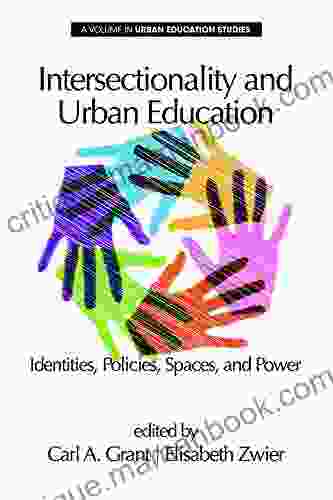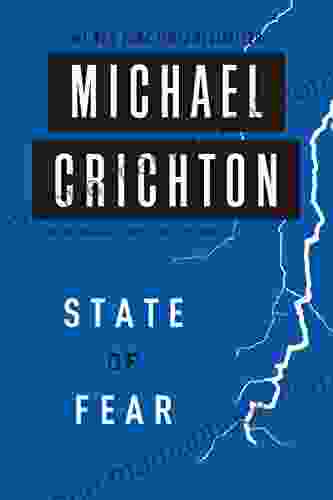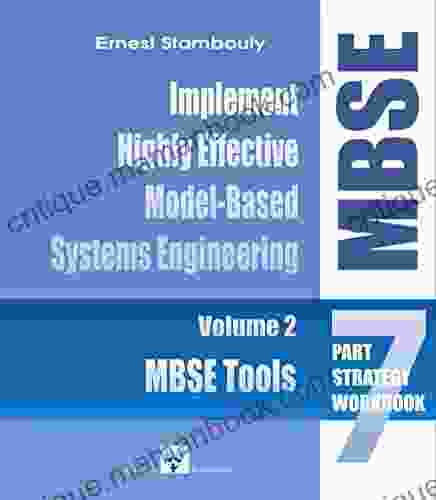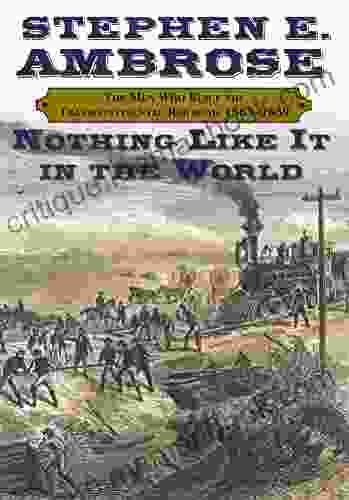Unpacking Intersectionality: The Multifaceted Impact on Urban Education

Understanding Intersectionality: A Holistic Perspective
Intersectionality, coined by legal scholar Kimberlé Crenshaw, is a theoretical framework that recognizes the interconnectedness of various forms of social stratification and oppression. It asserts that individuals' experiences cannot be solely understood through the lens of a single identity factor, such as race or gender, but rather through the complex ways in which these identities intersect.
4.6 out of 5
| Language | : | English |
| File size | : | 2539 KB |
| Text-to-Speech | : | Enabled |
| Screen Reader | : | Supported |
| Enhanced typesetting | : | Enabled |
| Print length | : | 332 pages |
In the context of urban education, intersectionality provides a valuable lens to examine how students' diverse social identities influence their educational experiences and outcomes. By acknowledging the multiple dimensions of their identities, educators can better understand the unique challenges and opportunities faced by urban students.
Race and Education in Urban Environments
Race remains a pervasive factor in shaping educational experiences in urban settings. Students of color, particularly those from low-income families, often face systemic barriers that limit their access to quality education.
- Residential Segregation: Many urban areas are characterized by residential segregation, which confines students of color to underfunded schools with fewer resources.
- Teacher Bias: Unconscious biases among teachers can lead to different treatment of students of color, affecting their educational outcomes.
- Discipline Disparities: Studies have consistently shown that students of color are disproportionately subject to harsh discipline, creating a hostile learning environment.
Intersectionality complicates the issue of race in education by recognizing the ways in which it intersects with other factors, such as gender and class. For example, Black girls in urban schools face the combined impact of racism and sexism, which can result in unique experiences of discrimination and marginalization.
Gender and Education in Urban Settings
Gender also plays a significant role in shaping educational experiences in urban environments:
- Gender Stereotypes: Gender stereotypes can influence teacher expectations and student self-perception, limiting opportunities for both boys and girls.
- Sexual Harassment: Girls in urban schools are particularly vulnerable to sexual harassment, which can create a hostile and unsafe learning environment.
- Teenage Pregnancy: Teenage pregnancy is a significant issue in urban schools, and can disrupt girls' education.
Intersectionality highlights the complex relationship between gender and other social factors. For instance, low-income girls of color face the combined effects of poverty, racism, and sexism, which can create substantial barriers to their educational success.
Class and Education in Urban Settings
Socioeconomic class is another crucial factor that shapes educational experiences in urban environments:
- Poverty and School Funding: Schools in low-income neighborhoods often have fewer resources, such as experienced teachers and up-to-date technology.
- Early Childhood Education: Students from affluent families are more likely to have access to high-quality early childhood education, which provides a strong foundation for academic success.
- Parental Involvement: Parents from higher socioeconomic backgrounds tend to be more involved in their children's education, which can lead to better outcomes.
Intersectionality reveals the ways in which class interacts with other forms of social stratification. For example, low-income students of color often face the combined impact of poverty, racism, and discrimination, which can create significant obstacles to their educational achievement.
Addressing Intersectionality in Urban Education
Recognizing the multifaceted nature of intersectionality is essential for addressing inequities in urban education. Educators, policymakers, and community stakeholders can take several steps to create more inclusive and equitable learning environments:
- Culturally Responsive Teaching: Educators need to be equipped with culturally responsive teaching strategies that acknowledge and value students' diverse identities.
- Implicit Bias Training: All stakeholders in the education system should receive training to identify and address implicit biases that may affect their interactions with students.
- School Climate Improvement: Schools can implement initiatives to improve school climate and foster a sense of belonging for all students.
- Collaboration with Community Organizations: Schools should collaborate with community organizations to provide additional support and resources for students facing challenges.
: Embracing Intersectionality for Educational Justice
Intersectionality provides a powerful lens for understanding the complex challenges and opportunities faced by urban students. By embracing intersectionality, educators and policymakers can create more equitable and inclusive learning environments that empower all students to reach their full potential.
Recognizing and addressing the multifaceted nature of social stratification is not only a matter of social justice but also a key to unlocking the educational potential of all urban youth. Only by embracing intersectionality can we truly transform urban education and ensure that all students have the opportunity to succeed.
4.6 out of 5
| Language | : | English |
| File size | : | 2539 KB |
| Text-to-Speech | : | Enabled |
| Screen Reader | : | Supported |
| Enhanced typesetting | : | Enabled |
| Print length | : | 332 pages |
Do you want to contribute by writing guest posts on this blog?
Please contact us and send us a resume of previous articles that you have written.
 Top Book
Top Book Novel
Novel Fiction
Fiction Nonfiction
Nonfiction Literature
Literature Paperback
Paperback Hardcover
Hardcover E-book
E-book Audiobook
Audiobook Bestseller
Bestseller Classic
Classic Mystery
Mystery Thriller
Thriller Romance
Romance Fantasy
Fantasy Science Fiction
Science Fiction Biography
Biography Memoir
Memoir Autobiography
Autobiography Poetry
Poetry Drama
Drama Historical Fiction
Historical Fiction Self-help
Self-help Young Adult
Young Adult Childrens Books
Childrens Books Graphic Novel
Graphic Novel Anthology
Anthology Series
Series Encyclopedia
Encyclopedia Reference
Reference Guidebook
Guidebook Textbook
Textbook Workbook
Workbook Journal
Journal Diary
Diary Manuscript
Manuscript Folio
Folio Pulp Fiction
Pulp Fiction Short Stories
Short Stories Fairy Tales
Fairy Tales Fables
Fables Mythology
Mythology Philosophy
Philosophy Religion
Religion Spirituality
Spirituality Essays
Essays Critique
Critique Commentary
Commentary Glossary
Glossary Bibliography
Bibliography Index
Index Table of Contents
Table of Contents Preface
Preface Introduction
Introduction Foreword
Foreword Afterword
Afterword Appendices
Appendices Annotations
Annotations Footnotes
Footnotes Epilogue
Epilogue Prologue
Prologue Adam Greenfield
Adam Greenfield Mike Davis
Mike Davis M Mazzoni
M Mazzoni Shannon Bream
Shannon Bream Anne Bishop
Anne Bishop Giuseppe Ungaretti
Giuseppe Ungaretti Kay Correll
Kay Correll Mary Kubica
Mary Kubica Michael Redhill
Michael Redhill Pete Harris
Pete Harris David Lehman
David Lehman Reese Witherspoon
Reese Witherspoon Adam Gower
Adam Gower Mandy Manning
Mandy Manning Adam Nicolson
Adam Nicolson Donald J Boudreaux
Donald J Boudreaux Layla Hagen
Layla Hagen Kait Nolan
Kait Nolan Max Jacob
Max Jacob Michael Schur
Michael Schur
Light bulbAdvertise smarter! Our strategic ad space ensures maximum exposure. Reserve your spot today!
 Hunter MitchellFollow ·7.6k
Hunter MitchellFollow ·7.6k Joe SimmonsFollow ·13.5k
Joe SimmonsFollow ·13.5k Quentin PowellFollow ·10.7k
Quentin PowellFollow ·10.7k Charlie ScottFollow ·10.3k
Charlie ScottFollow ·10.3k Gordon CoxFollow ·11.2k
Gordon CoxFollow ·11.2k Holden BellFollow ·8.6k
Holden BellFollow ·8.6k Wade CoxFollow ·2.3k
Wade CoxFollow ·2.3k Terry BellFollow ·7.5k
Terry BellFollow ·7.5k

 Dan Henderson
Dan HendersonPaper Blood: Two of the Ink Sigil
By D.S. Otis In...
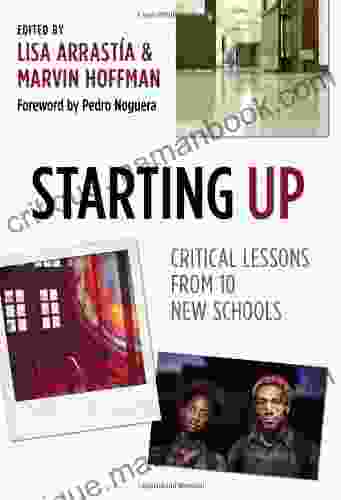
 Joseph Conrad
Joseph ConradStarting Up: Critical Lessons from 10 New Schools
Starting a new school...

 William Powell
William PowellThe Peculiar World of Funny Science Fiction Comedy: Where...
Prepare yourself for an...
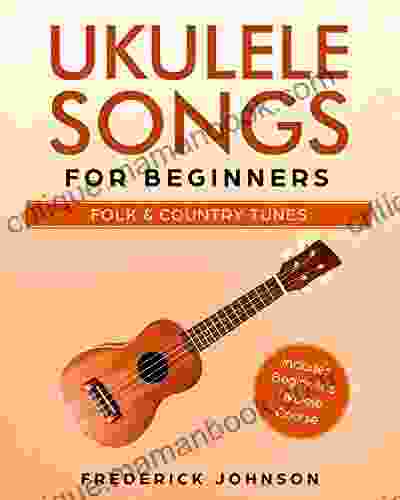
 Edgar Hayes
Edgar HayesUkulele Songs for Beginners: A Comprehensive Guide to...
Embark on a musical journey with the...

 Ralph Turner
Ralph TurnerDogs vs. Chickens: A Comprehensive Guide to Choosing the...
Dogs and chickens are both popular...
4.6 out of 5
| Language | : | English |
| File size | : | 2539 KB |
| Text-to-Speech | : | Enabled |
| Screen Reader | : | Supported |
| Enhanced typesetting | : | Enabled |
| Print length | : | 332 pages |


